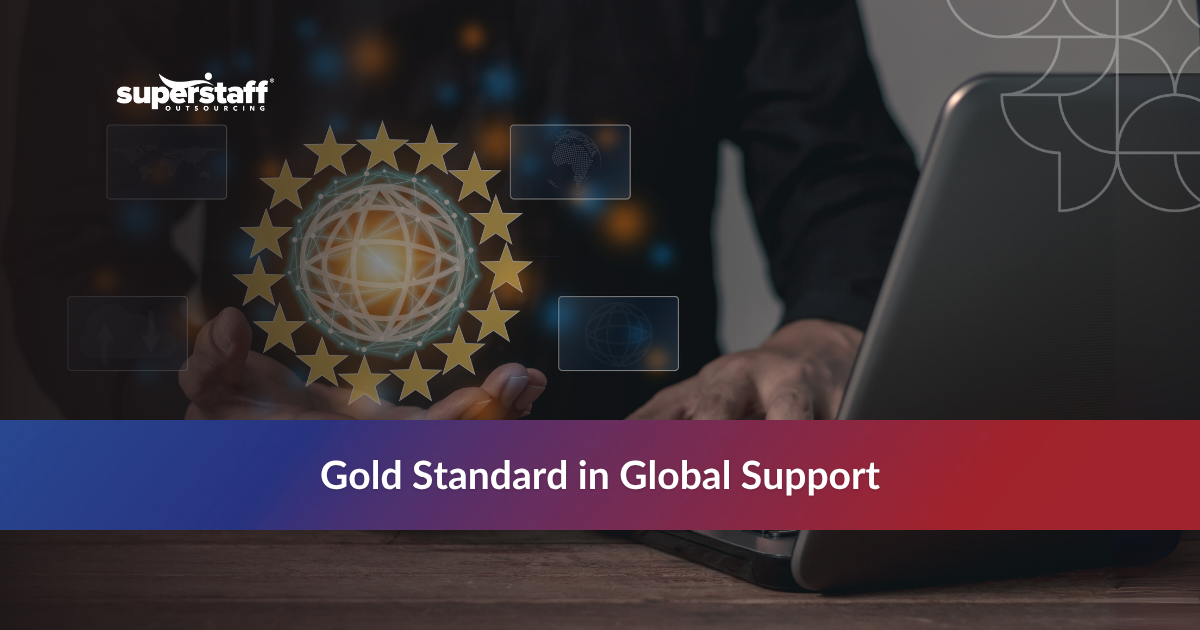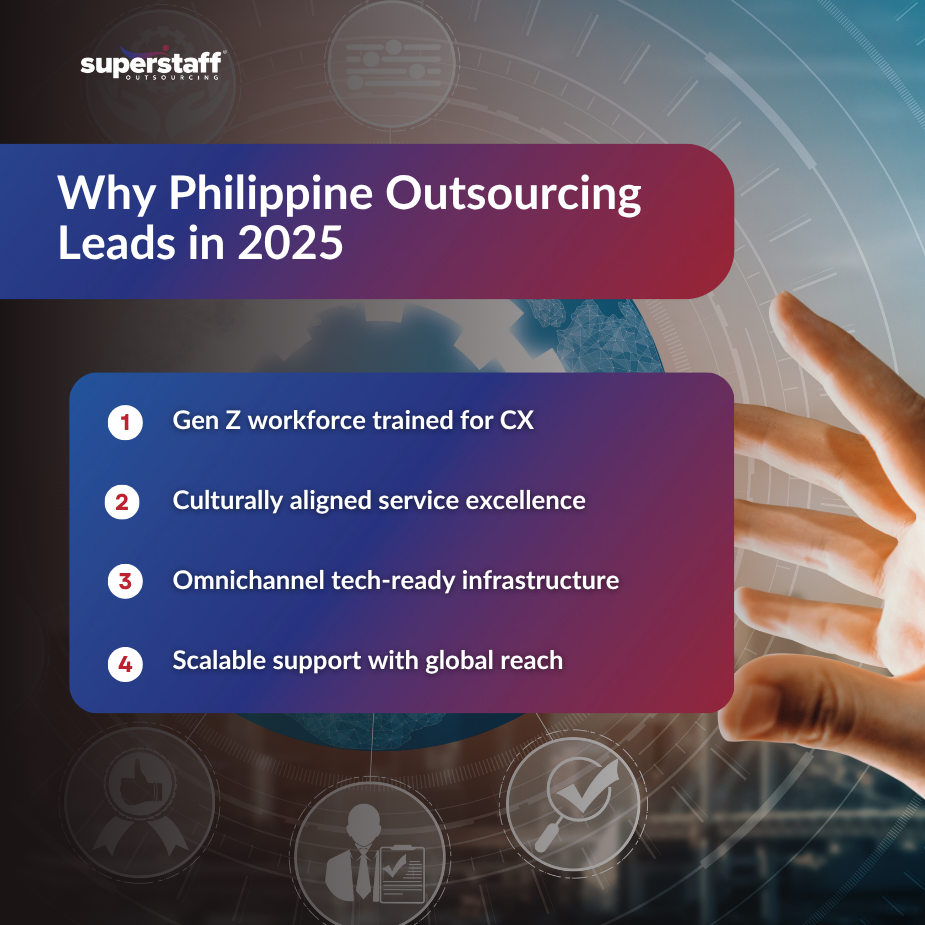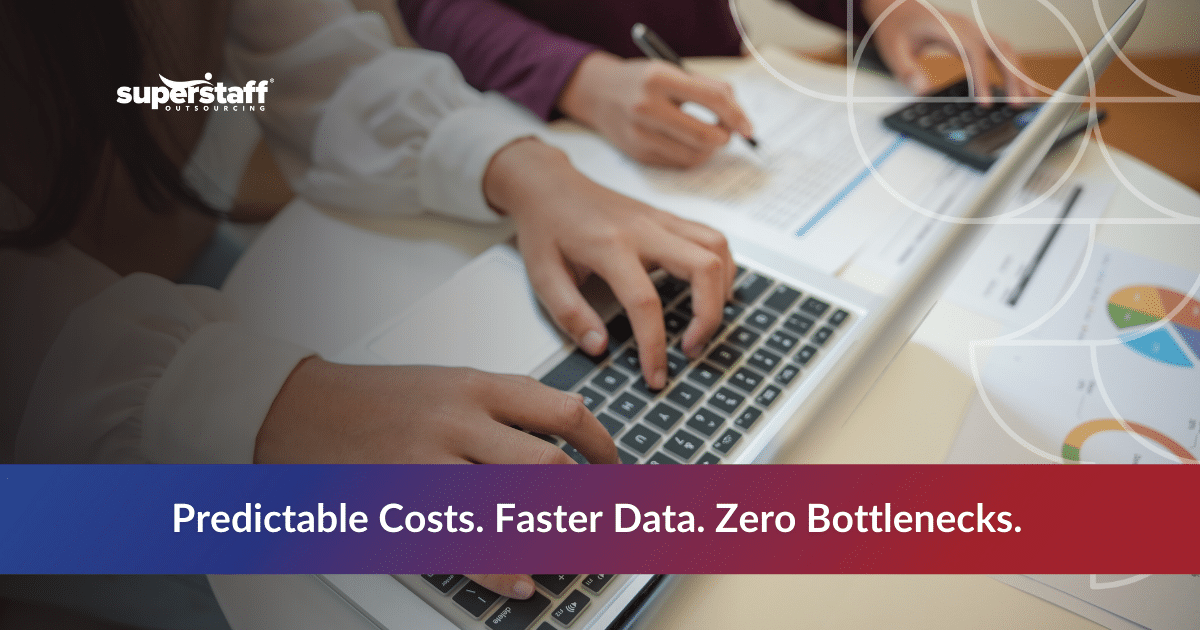
Global companies may explore different BPO regions, but the Philippines still leads where it matters most—customer satisfaction, language fluency, and service culture. For decades, the country has been synonymous with world-class support.
In 2025, the industry has not only kept pace but evolved to meet new expectations. This blog explores why Philippine outsourcing continues to outperform competitors and why it remains the first choice for companies seeking global customer support.
Our goal is to reaffirm the strengths of the Philippine outsourcing sector and guide decision-makers in choosing a proven, future-ready destination for support services.
A Talent Pool That Evolves With the Times

Philippine outsourcing continues to thrive because of one consistent advantage: the workforce. While other countries grapple with talent shortages or high turnover, the Philippines continues to produce professionals trained for the demands of modern CX and back-office roles. In 2025, Gen Z has joined the workforce in full force—digital natives who understand how to manage everything from SaaS platforms to multichannel ticketing tools.
English fluency remains a hallmark of Philippine outsourcing, but today’s agents offer more than just linguistic capability. Through initiatives like TESDA and CHED, graduates are entering the workforce with skills aligned to global outsourcing needs. Whether it’s AI prompt handling, healthcare documentation, or specialized technical support, training programs are in step with client expectations. That ability to evolve—not just react—is what keeps Philippine outsourcing a step ahead.
It’s not uncommon for a U.S.-based SaaS startup to onboard a Filipino team that’s already familiar with its tools and workflows. The learning curve is minimal, and the adaptability is high. In a world where agility matters, the Philippines doesn’t just fill roles—it builds capability from day one.
Service Culture Rooted in Empathy and Respect
Skills and training may be replicable, but cultural empathy isn’t something you can script. That’s where Philippine outsourcing delivers its most distinct value. Filipino agents are known for their warm, respectful tone and emotionally intelligent communication style. Whether resolving a technical issue or handling a frustrated customer, agents instinctively know how to defuse tension and build trust.
One of the most underappreciated aspects of Philippine outsourcing is its high-context communication style. Phrases like “Yes, po” aren’t just polite—they reflect a deeply ingrained sense of service. Customers notice it. More importantly, they feel it.
This cultural alignment isn’t accidental. The Philippines shares deep historical and cultural ties with the West, making interactions feel natural and seamless. While some regions struggle with tone or miscommunication, Filipino agents often receive praise for their ability to relate to customers on a human level.
These values translate into retention as well. Many BPO employees in the Philippines take pride in their work, viewing their roles not as transitional jobs but as professional careers. That pride, often rooted in family values and a desire to help others, translates into consistent performance and lower attrition in frontline roles.
Tech-Enabled, Omnichannel-Ready Support
Philippine outsourcing may be known for its people, but it’s now equally defined by its technological maturity. In 2025, most BPOs in the country offer full-stack digital support—voice, chat, email, SMS, social media, and app-based channels. This transformation didn’t happen overnight. It was the result of sustained investment in digital infrastructure and operational tooling.
Agents now operate within omnichannel CRMs, respond to real-time analytics, and collaborate through cloud-based platforms. Philippine outsourcing companies have embraced automation where it counts, freeing human agents to handle higher-order issues. AI tools assist in routine queries, but humans still lead when complexity arises.
Remote work has become standard across the industry. With cybersecurity protocols and cloud telephony firmly in place, even rural agents are now able to serve global clients without compromising on quality or compliance. This distributed model not only expands the talent pool but also reduces risk for clients.
For businesses looking to scale omnichannel support without rebuilding their tech stack, Philippine outsourcing providers offer plug-and-play integrations, security compliance, and trained digital agents—all without the heavy lifting.
Scalability and Redundancy Built for Global Operations
One of the reasons Philippine outsourcing remains indispensable is its ability to scale under pressure. Need 20 agents today and 100 tomorrow? Philippine providers can do that—with little disruption and full control. The country has developed a multi-site delivery model, with operations in both metro and rural locations. This geographic spread is more than strategic—it’s a buffer against risk.
Companies with global operations need reliability, and that includes disaster recovery, load balancing, and 24/7 operations across time zones. Philippine outsourcing supports these needs with mature staffing pipelines, rotational scheduling, and high agent availability. Whether it’s a holiday rush, a product launch, or a customer support crisis, response time is never compromised.
One example often seen in retail is the seasonal ramp-up. In the Philippines, flex teams are standard practice. Training pipelines allow businesses to activate reserve talent without lowering CSAT scores. That’s a level of preparedness that few regions can match.
It’s also worth noting how these systems support long-term growth. Philippine outsourcing doesn’t just solve temporary gaps—it builds infrastructure that scales with your business.
The Cost Advantage Without the Compromise
Let’s talk about what everyone wants to ask: is Philippine outsourcing still cost-effective? The short answer is yes—and in 2025, it’s more than just a cost play. The real value lies in how much quality you get per dollar. While labor rates are competitive, the quality of output exceeds expectations. That’s why midmarket firms and Fortune 500 companies alike continue to bet on the Philippines.
There’s a reason the benefits of outsourcing in the Philippines are so often tied to return on investment. You’re not sacrificing customer experience to cut costs—you’re improving it. Pricing models are predictable, usually structured in a way that aligns with your KPIs. Whether you need a basic support team or high-touch technical assistance, Philippine outsourcing offers tiered solutions to match your growth stage.
When compared to Western or nearshore markets, the Philippines consistently delivers better service outcomes at a fraction of the cost. But the real magic is how these savings are reinvested into better training, better tools, and more personalized service delivery.
For businesses watching every dollar, it’s not about being the cheapest—it’s about delivering the most value. And in that equation, Philippine outsourcing wins every time.
Government Support and Industry Stability
One of the key reasons Philippine outsourcing continues to thrive is government alignment. The BPO sector is recognized as a vital pillar of the national economy, which means it enjoys infrastructure investment, tax incentives, and policy support.
Through agencies like PEZA, companies receive benefits like tax holidays, free trade zone access, and regulatory support. That makes it easier for global firms to establish long-term partnerships without red tape.
More importantly, the government actively works with private stakeholders to prepare the next wave of BPO talent. Cybersecurity laws have also caught up with international standards, providing peace of mind when handling sensitive customer data. As the demand for data privacy grows globally, Philippine outsourcing companies are equipped to meet these demands head-on.
This stability means less risk for businesses outsourcing customer-facing operations. You’re not just getting agents—you’re getting a whole ecosystem that is designed to support global partnerships with consistency and resilience.
In a world where policies shift and economic climates fluctuate, the Philippines remains a steady and supportive destination for BPO operations.
Why SuperStaff Is a Philippine BPO You Can Count On
There are hundreds of BPO providers in the Philippines, but not all are created equal. At SuperStaff, we pride ourselves on being more than just a vendor—we are a true partner in your growth. Based in the heart of the Philippines, we combine local talent with global thinking to help companies scale smarter.
Our teams don’t just answer calls or respond to chats. We help you solve customer challenges, retain loyalty, and strengthen your brand’s reputation. With experience across industries like tech, healthcare, retail, and professional services, we understand how to adapt support strategies to your business goals.
We operate 24/7, provide multilingual capabilities, and invest in enterprise-grade security infrastructure. Whether you’re looking to expand into new markets or stabilize an existing one, SuperStaff offers the flexibility and quality assurance you need to move fast and stay ahead.
Over the years, we’ve helped startups launch their first support teams and midmarket firms streamline global operations. What they all had in common was the need for a partner that could deliver consistently—and we’ve done just that.
Philippine Outsourcing Is the Gold Standard for Global Support
Philippine outsourcing remains the gold standard in 2025 because it blends human empathy, tech agility, and operational scale like no other destination. This is not just about tradition—it’s about transformation. The country continues to push boundaries, ensuring that every interaction reflects professionalism, care, and efficiency.
With a future-ready talent pool, a culture rooted in service, and omnichannel capabilities that rival any global market, the Philippines is not just a viable option—it’s the smartest one. Add to that the cost advantages, scalable infrastructure, and unwavering government support, and the choice becomes clear.
If you’re ready to experience the Philippine outsourcing advantage firsthand, partner with SuperStaff and see why global brands continue to rely on us year after year. We don’t just provide service—we build partnerships that last.






